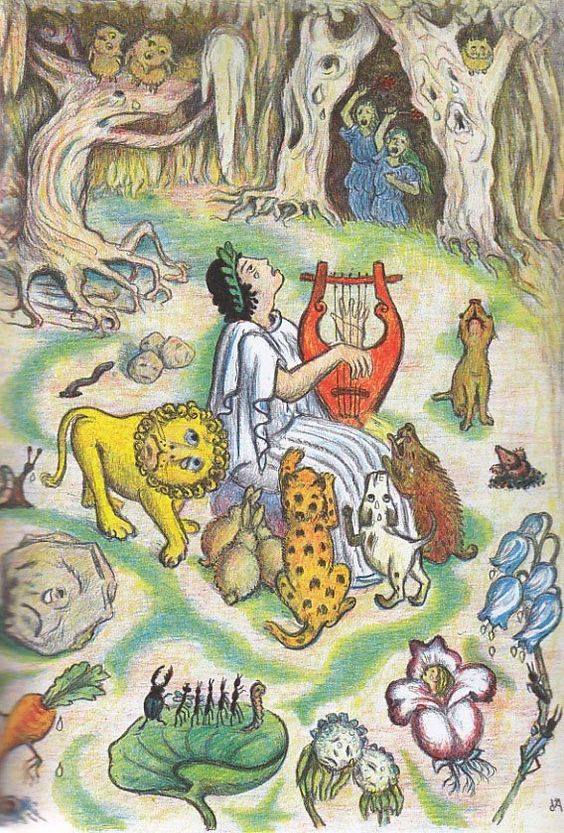Favorite Fictional Characters, #333: Orpheus
- Joe Pace

- Nov 28, 2016
- 2 min read

There are a lot of heroic humans and demigods in Greek mythology. The vast majority are tough guys, warrior kings in mold of Perseus and Theseus, Hercules and Achilles. Even Odysseus, renowned for his brains, is still a rugged customer and holds his own at the walls of Troy. Unusual among this company then is Orpheus, a softer son of Greece, a poet, a musician, a singer. So masterful was he at these pursuits that beasts of the field would lie down to hear him, and even rocks roll closer and weep at the beauty of his song. Orpheus managed to show up at a few of the big moments in the broad narrative of Hellenic myth (he was an Argonaut, for instance, which is sort of like being a member of the 2004 Red Sox). But he existed largely apart from the hack-and-slash labors of his bronzed brethren, wandering the craggy hills of the Pelopponesus with his lyre and his talent.
The most famous tale about Orpheus, and the one that has always haunted me, deals with the tragedy of his wedding day and the brutal aftermath. He was to marry Eurydice, a daughter of Apollo, yet that morning she stepped on a viper and died. His song of lament was so agonizing and beautiful that the gods themselves suggested he travel to Hades to petition for her release. Orpheus made the journey, using his unparalleled music to soothe and subdue even the fiercest demons. When he came before Hades and his captive queen Persephone, Orpheus performed with such longing that the nether god agreed to restore Eurydice on the condition that she walk behind her husband on the long return voyage, and that he never look behind to confirm she was there until both were safely above ground again.
Spirits whispered doubt into his ears along the way, and Orpheus eventually did sneak one glance, at the very threshold of the surface world, at which time his beloved was whisked away forever. His lack of faith becomes the tragic flaw in the character of Orpheus, the central pathos to his story. Had he been stronger of will, had he but trusted in things unseen, had he placed his faith in his wife's constancy and love, he would have conquered all. But he could not withstand the doubts that assailed him, the creeping suspicion of the frailty and duplicity of others. The very insight into the falseness of men and gods that made him the foremost musician of classical times had betrayed him.
Orpheus never again saw Eurydice, never again loved women (transferring his affections to young boys "in their brief springtime and early flowering", Ovid tells us!). In the end, he is torn to pieces by the drunk Maenads, the frenzied wine-worshiping women of Thrace. The gods set his matchless instrument in the sky as the constellation we know as Lyra.




Comments